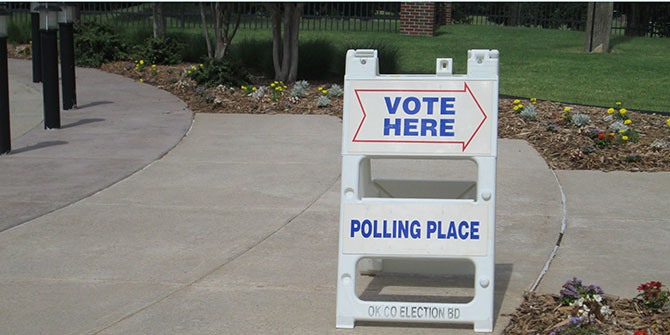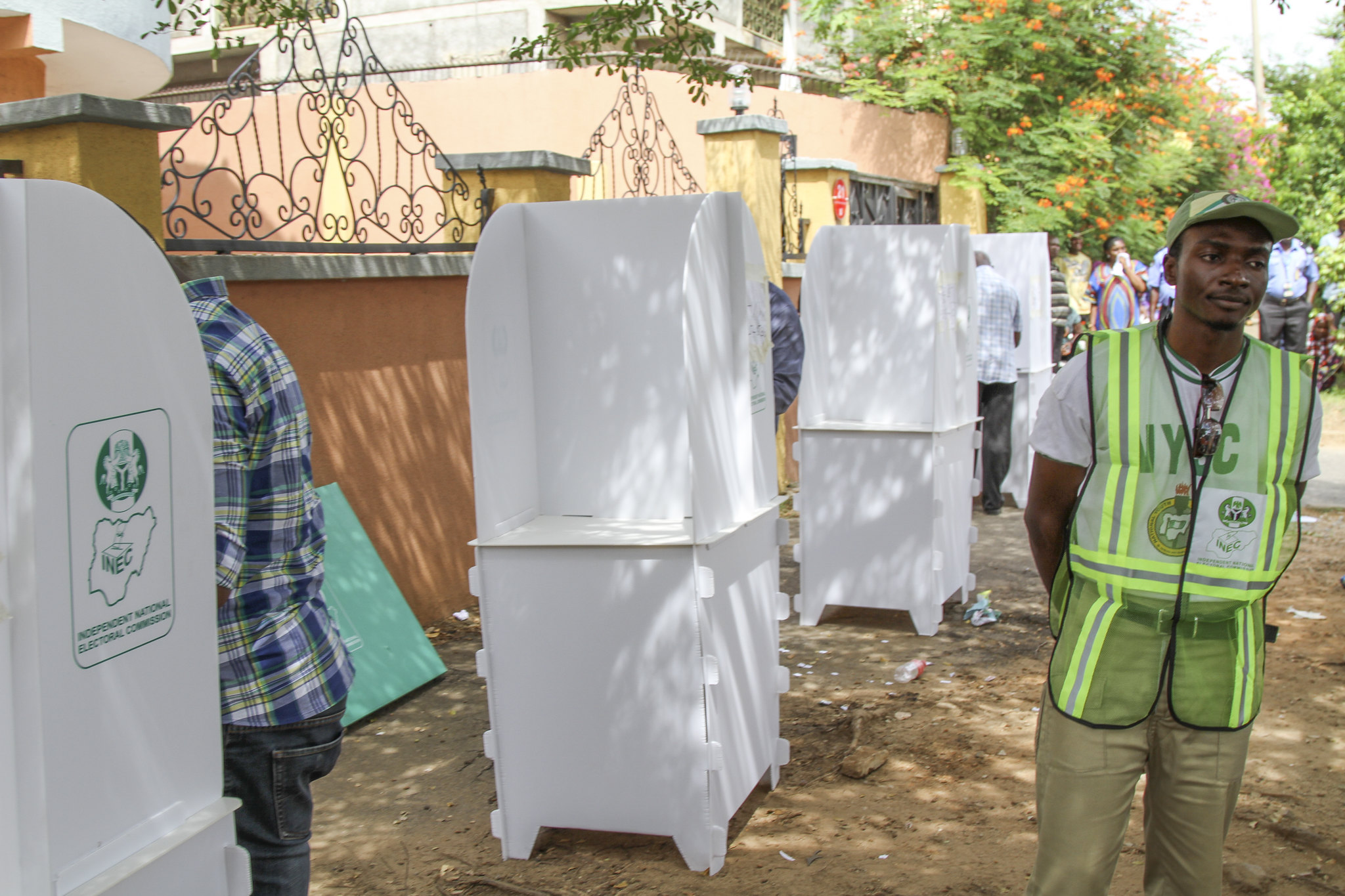Joseph Atsu Ayee examines the challenges facing the Ghana Electoral Commission in what could be pivotal elections for the West African country.
This article is part of our African Elections series.
Ghana is considered one of the most resilient democracies in West Africa after two and a half decades of military rule and political instability. Since 1992, political governance, a necessary crucible for sustaining economic governance has improved considerably.
The coup-ridden post-independence era gave way to a stable multi-party democracy. Six elections have been held since 1992 with peaceful transfers of power between the country’s two main political parties, namely, the National Democratic Congress (NDC) and New Patriotic Party (NPP).
The December 2012 election was won by the ruling party, NDC under the leadership of John Dramani Mahama, by a narrow margin of less than one per cent (325 000 votes out of 11 million). The election results were challenged at the Supreme Court by the opposition party NPP, which alleged election irregularities and the cancellation of over one million votes. On 29 August 2013, the Court dismissed the case and upheld John Mahama as the legitimate elected President.

The peaceful arbitration of the election petition with both political parties accepting the ruling further consolidated Ghana’s democracy. The court case no doubt largely divided the country on political lines. This notwithstanding, the risk of instability was muted by calls from civil society, the clergy and the Peace Council for peace to be maintained in the country. The outcome of the petition also highlighted the need for electoral reforms, which were recommended by the Supreme Court and which are to be initiated and implemented by the Electoral Commission (EC), the election management body.
It is against this backdrop that the role of the EC in managing a credible, free and fair election on 7 December 2016 should be viewed. Even though the country has successfully held peaceful elections over the last 24 years, the stakes are higher in this seventh election for a number of reasons. First is the institutionalised winner-takes-all politics adopted on the return to constitutional rule in 1993 in which the triumphant candidate gains access to all resources of the state with the losing side completely excluded. Second is the two-term cycle of regime change since 1993 with alternating parties taking charge of the government in 2000 and 2008. Finally, there is a perception that the inexperience of the newly-appointed chairman of the EC could make her subject to manipulation.
Given the high stakes in the 2016 elections, some matters have come up which have sought to undermine the integrity of the EC. These include some legal challenges against the EC by some political parties and individuals. One of the key legal challenges is the EC’s disqualification of 13 presidential candidates on grounds of errors and omissions on their presidential nomination forms. A subsequent successful legal challenge by the presidential candidate of the Progressive People’s Party (PPP) led the EC to approve three of the 13 previously-disqualified contenders.
Perhaps the two key issues confronting the EC are its preparedness for the election and creating the needed trust from the political parties. Even though the EC has assured key stakeholders and citizens that it is ready for the election, there is still apprehension and concern among the majority of the political parties with perhaps the exception of the ruling party, the NDC, which is perceived as a “defender and supporter” of the action and inaction of the EC.
The apprehension and concern about the EC’s preparedness stem from the state of implementing 27 recommended electoral reforms, many of which can also be accomplished in collaboration with political parties and Parliament.
The Electoral Commission has already implemented the abolition of the so-called “strong room,” which in the past was seen as lacking transparency with setting up of a national collation centre. In addition, the Inter-Party Advisory Committee (IPAC), which provides the platform for the political parties to engage with the EC and thrash out thorny electoral issues, has been institutionalised. Other changes include the reduction in the number of voters per polling stations to help reduce queues and an increase in the number of polling stations as well as the use of a biometric verification device (BVD) in the election.
Notwithstanding the implementation of these reforms, the minority parties do not trust the EC and have accused it of bias and incapable of organising free and fair elections. Some of the minority parties such as the Progressive People’s Party (PPP) have called on the EC to postpone the elections because they have not been given enough time to prepare because of the legal challenge. In addition, the EC failed to send the request to change the election month to Parliament on time, a key reason raised by the NPP to vote against the motion. The communication strategy of the EC was also not proactive in the first instance – a situation that prompted the US embassy to support the EC to develop one. There was therefore a communication gap between the EC and the citizens on the state of the reforms, which has since improved.
The impact of the inability of the EC to elicit the trust of the minority parties and the lack of an effective communication strategy has created a credibility gap which the EC has sought to repair through more engagement with the parties and the general public. They also created the perception that the EC is not prepared for the election.
However, the preparedness of the EC will only be gauged on election day. Accordingly, the EC, working in collaboration with the political parties, security forces and other stakeholders, should be able to conduct a credible, free and fair election on December 7, 2016 to further consolidate democracy. It cannot therefore afford to fail the people of Ghana in this democratic enterprise!
Joseph Atsu Ayee is a Professor and an Independent Scholar in Accra. He has held teaching posts at the University of Ghana and the University of KwaZulu-Natal. He is formerly Head, Department of Political Science and Dean, Faculty of Social Sciences at the University of Ghana, Rector, MountCrest University College, Ghana and first Emeka Anyaoku Visiting Professor of Commonwealth Studies, University of London.
The views expressed in this post are those of the author and in no way reflect those of the Africa at LSE blog or the London School of Economics and Political Science.






1 Comments